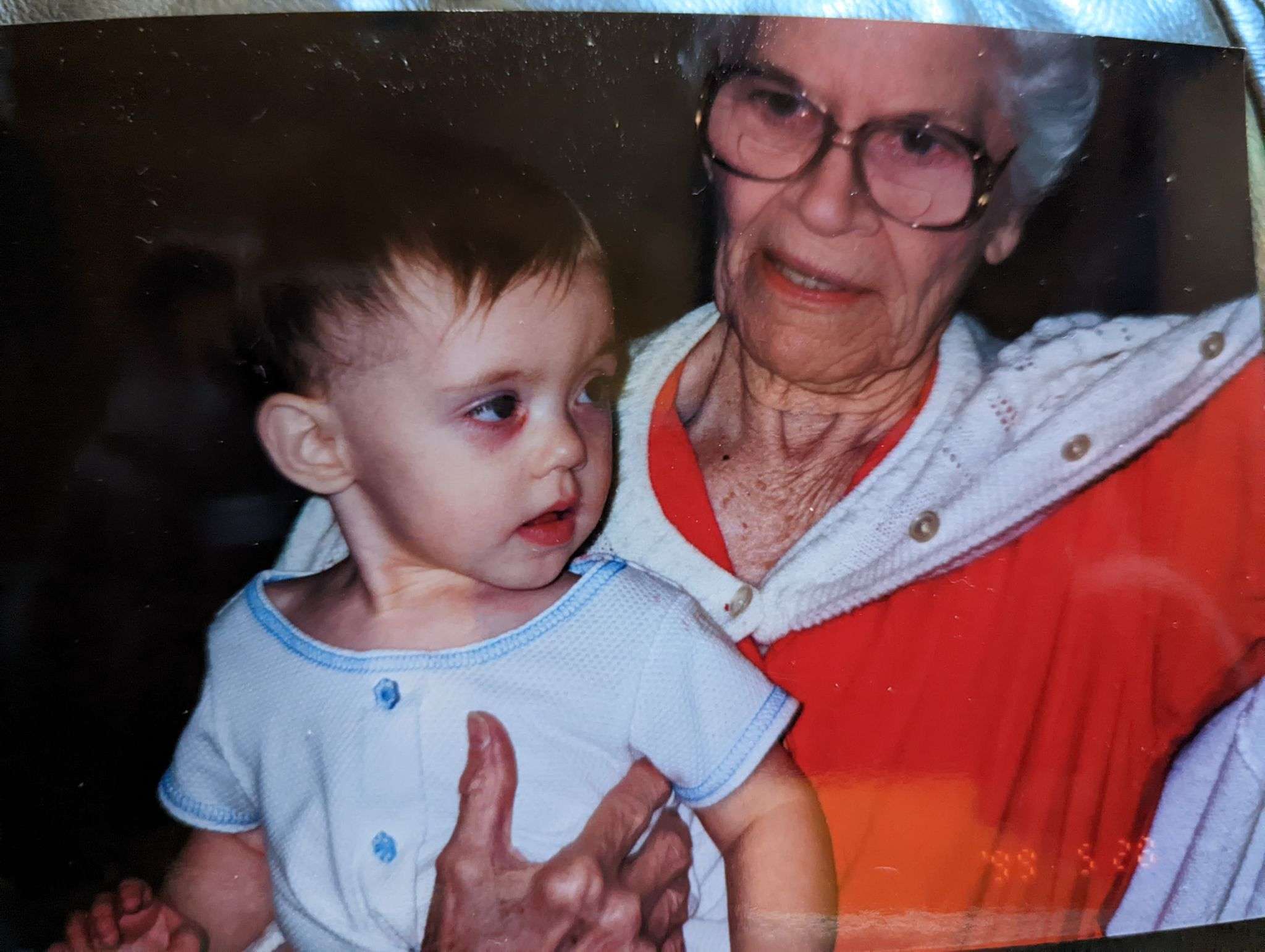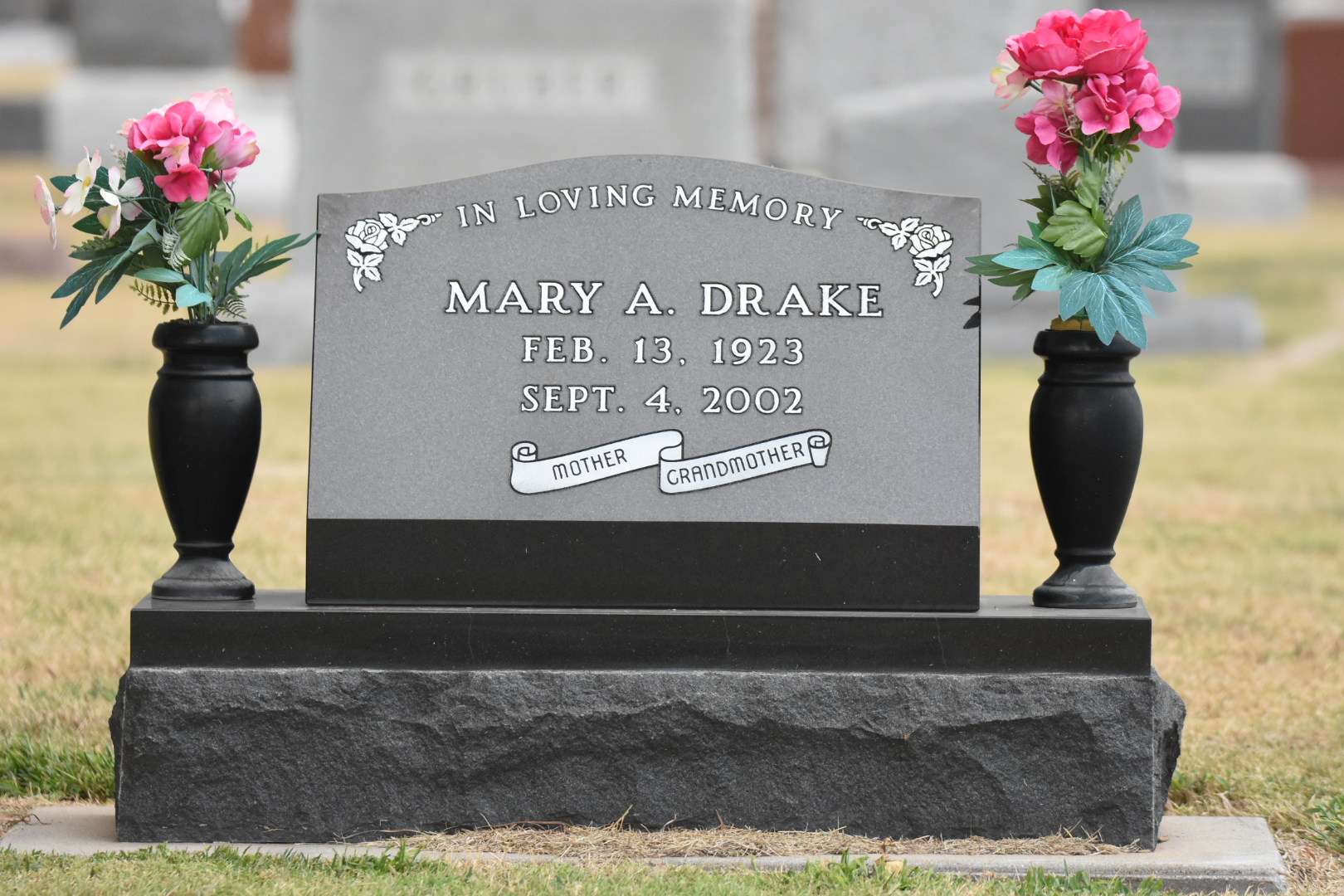
By MIKE COURSON
Great Bend Post
On Sept. 4, 2002, the tragic and inexplicable occurred: an unknown subject murdered two Great Bend residents and walked away from the Dolly Madison bakery - one of the city's busiest intersections at one of the busiest times of day. Yet 20 years later, the case remains unsolved.
Just before 8 p.m. that evening, a delivery driver found the bodies of 24-year-old Mandi Alexander and 79-year-old Mary Drake. Alexander had recently begun working at the bakery outlet store, and Drake was a customer that day.
Alicia Mong (Drake) graduated from Great Bend High School in 1996. In 2002, she was living in Hutchinson. Sept. 4 should have been an otherwise unremarkable day except it was a long one and Mong remembers being tired. She tried to call her grandmother, Mary, before going to bed.
"She didn’t answer," Mong said. "I was not at all concerned because she was fiercely independent and spent a lot of time at her sisters' houses. We went on with it and went to bed. I really do not know what time it was when we were awoken by loud banging on our front door. We opened it, and there were two police officers telling me that I needed to call my dad because something had happened to my grandma, and she was deceased."
With few details to go on, Mong gathered her family and made the 70-minute drive to Great Bend. She dropped her kids off with family and headed for the bakery.

"When we pulled up there were so many cars, lights and people standing around," said Mong. "I found my dad and just hugged him. He told me what he knew, which was very little. I just remember feeling so very sad for him. His mom was murdered, people were staring at our family, driving up asking questions. Officers were asking questions, and all he could do was stand there and endure it. It sucked, simple as that."
Once the body was removed from the bakery at 10th and Harrison, the family retreated to Mong's parents' home and began notifying other family members of the death. The following day, an agent from the Kansas Bureau of Investigation asked the family for access to Mary's home. Mong and her father accompanied the agent.
"The agent asked a lot of questions, as he should," Mong said, "but the one that stood out to me was directed to my dad. 'Did your mom have any enemies that we should know about? Is there anyone who was angry at her or would have reason to hurt her?' I don’t know why, but it angered me. I could only think, 'Seriously, no! What the heck! Why would you ask that?' No one was so mad at my 79-year-old, four-foot, 11-inch grandma that they would want to kill her. I know now they had to ask those types of questions, but man, did that hit me wrong."
Everything changed for the family after Sept. 4. All families deal with loss, but most, fortunately, never have to endure a murder investigation. "In my experience, everything was so secretive and scary," said Mong. "There was some sort of law enforcement around all the time, at the viewing, the funeral service, and the burial. I thought differently about going places. I looked at people differently."
Mong recalls attending the Kansas State Fair shortly after the double murder. She saw a potential suspect in every passerby. "I watched people walk by; I studied them," she said. "I remember thinking, 'Someone here could know something, or someone here could be the person who killed my grandma.' I remember internally yelling at myself to stop, put the thoughts away, enjoy the time with my family, but it wasn’t going to happen. We ended up leaving the fair pretty early."
The Dolly Madison case is also exceptional because it has yet to be solved. There is no closure in brutal crimes, but a conviction would provide some relief, and perhaps, even answers. The Drake family never received that. Alicia's father and Mary's son, Ron, passed away in October 2020, never seeing a killer brought to justice. The nature of the crime brought about many theories.
"I started to question the truth and believe all the stories I heard from people, hoping they were the one," Mong said. "The one that could give us the golden information. But I realized there were a lot of people that just thought they knew what happened or wanted to be the hero and had all the answers.
"This never heals. It never goes away. In the last 20 years, we have had several phone calls, texts, Facebook messages from strangers telling us they know what happened that night. They tell us names, places, and stories that we relay to law enforcement, but nothing ever comes from it. They also tell us the police know what happened, but they will never be able to convict anyone for the crime. It never slips your mind, and when it does finally get put to the back of your brain, something pops up again, and the pain and anger resurface."
There is one saving grace about Sept. 4, 2002. According to an eyewitness that day, before going to the bakery, Mary had stopped by Alicia's sister's home to pick up her granddaughter for the trip. Fortunately, no one was home. "Her daughter could have easily been with Grandma and things could have been much, much worse," Mong said. "This will always stick with us."

Mong remembers being close to her grandmother growing up. She said Mary was strong, independent, loving, compassionate, and resourceful. Mong wants her to be remembered as more than a murder victim but also as a sister, an aunt, a mother, grandmother, and great-grandmother.
"My grandma was my idol," Mong said. "She was my person. I can’t remember a time or a memory that she was not a part of. She meant so much to my family that there are no words to express how grateful I am to have had her in my life."
Mary's mother passed away at a young age during childbirth, so Mary and her siblings were raised by her father and grandmother. Mary had three sons, enduring her own grief when the eldest passed away in his 20s. She later divorced and raised her other two sons on her own, working at Fuller Brush until retirement. She enjoyed playing cards and spending time with her family.
Mong said her fondest childhood memories always include her grandmother. On Saturday nights, Mary set up the hideaway couch for Alicia and her sister, watching "Saturday Night Live" with some old-fashioned popcorn that included spray-on butter unique to Mary's house. Other nights it was the same routine in front of "Hee Haw" or "Barbara Mandrell & the Mandrel Sisters." On especially good nights, Mary treated the girls to slivers of a frozen Snickers bar and ice-cold Pepsi.
"Then every Sunday morning there was no TV, but the radio was on, and the music was playing," Mong recalls. "She would clean and do laundry on Sundays, and I remember watching her dance around. She loved to Polka and sing while she was working. As my sister and I got older and busier, we didn’t spend as much time with Grandma but that changed again when mine and my sister’s oldest were born and Grandma became a great-grandma. Those girls changed her life, and she loved them. She was the center of our world when we were little, and then she became the center of their world as well. She was so much more than a murder victim."
Twenty years later, Mong still feels anger and disappointment. She said she knows about as much today as she did in 2002, but the feelings are compounded by not having any answers - of disappointing Mary and Ron for not being able to find the tip that might lead to the murderer. She's angry that she and her family have been denied the opportunity to properly grieve the loss of a loved one.
"Normally after the service and burial, you start to gradually heal," she said. "Your anger and sadness eventually turn into happy memories. Not with this. This will never end. I knew that no one was being held responsible for the murders. I knew the murderer was out there walking around among us somewhere. I was always on the lookout for someone that might match the sketch. I listened to every conversation I could, watched every person around me, and couldn’t think of anything else.
"It was not because I was scared. I was angry. I was so very angry that this happened to my grandma. I was mad that it seemed everyone knew what was going on except for us. We knew very little. I was mad because it felt that there was not enough being done. I was angry that I knew how much my grandma suffered during her last minutes, instead of peacefully passing in her old age. I was angry that this affected my parents so severely. The two and their marriage were never the same. I was angry that my sister was so hurt and anxious, and there was absolutely nothing that I or anyone could do about it. I was angry that they took her from her great-grandchildren.
"I have learned to deal with the anger for the most part, but I must admit that I am still angry after 20 years. "We are without answers and still no closer to justice and closure. I am angry because it doesn’t seem, in any way, that law enforcement is trying to find these monsters. Most of all, I am still angry that someone took my person away from me."




